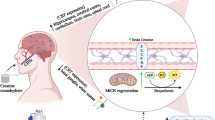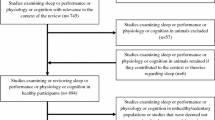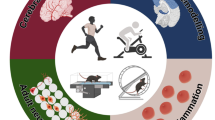Abstract
Objective: To study the effect of Liuwei Dihuang Decoction (六味地黄汤) or Yukmijihwangtang (YJT) on endurance exercise by in vivo experiment. Methods: ICR mice were randomly divided into the control group (distilled water) and the YJT groups (1, 10, 100 mg/kg), 5 animals per group. YJT and distilled water were orally administered. The anti-fatigue effect of YJT was evaluated by open fifiled test (OFT), forced swimming test (FST), and tail suspension test (TST). Results: In the OFT, YJT signifificantly increased the total movement distance in a dose-dependent manner. Additionally, treatment with YJT signifificantly decreased immobility time in the FST and the TST. Various neurotransmitters such as norepinephrine (NE), serotonin (5-HT), dopamine (DA) levels were increased by FST. Administration of YJT down-regulated the expression levels of NE, 5-HT, 5-hydroxyindole-acetic acid (5-HIAA), and DA in the brain stem and hypothalamus of mice. Moreover, protein expression of HSP70 in mice liver and heart muscles was signifificantly increased in the YJT groups. Conclusions: YJT could ameliorate fatigue and enhance exercise tolerance through suppressing of brain monoamines including NE, 5-HT, 5-HIAA, and DA in FST mice model.
Similar content being viewed by others

References
Mehta RK, Agnew MJ. Influence of mental workload on muscle endurance, fatigue, and recovery during intermittent static work. Eur J Appl Physiol 2012;112:2891–2902.
Finsterer J, Mahjoub SZ. Fatigue in healthy and diseased individuals. Am J Hosp Palliat Care 2014;31:562–575.
Christopher G, Thomas M. Social problem solving in chronic fatigue syndrome: preliminary findings 2009;25:161–169.
Fitts RH. Cellular mechanisms of muscle fatigue. Physiol Rev 1994;74:49–94.
Sahlin K, Tonkonogi M, Söderlund K. Energy supply and muscle fatigue in humans. Acta Physiol Scand 1998;162:261–266.
Ventura-Clapier R. Exercise training, energy metabolism, and heart failure. Appl Physiol Nutr Metab 2009;34:336–339.
Tamaki T, Uchiyama S, Uchiyama Y, Akatsuka A, Roy RR, Edgerton VR. Anabolic steroids increase exercise tolerance. Am J Physiol Endocrinol Metab 2001;280:E973–E981.
Kumar R, Negi PS, Singh B, Ilavazhagan G, Bhargava K, Sethy NK. Cordyceps sinensis promotes exercise endurance capacity of rats by activating skeletal muscle metabolic regulators. J Ethnopharmacol 2011;136:260–266.
Huang WC, Chiu WC, Chuang HL, Tang DW, Lee ZM, Wei L, et al. Effect of curcumin supplementation on physiological fatigue and physical performance in mice. Nutrients 2015;7:905–921.
Choi HI, Lee HW, Eom TM, Lim SA, Ha HY, Seol IC, et al. A traditional Korean multiple herbal formulae (Yuk-Mi-Jihwang-Tang) attenuates acute restraint stress-induced brain tissue oxidation. Drug Chem Toxicol 2017;40:125–133.
Kang M, Kim JH, Cho C, Lee KY, Shin M, Hong M, et al. Effects of Yukmijihwang-tang derivatives (YMJd) on ibotenic acid-induced amnesia in the rat. Biol Pharm Bull 2006;29:1431–1435.
Park E, Kang M, Oh JW, Jung M, Park C, Cho C, et al. Yukmijihwang-tang derivatives enhance cognitive processing in normal young adults: a double-blinded, placebo-controlled trial. Am J Chin Med 2005;33:107–115.
Rho S, Kang M, Choi B, Sim D, Lee J, Lee E, et al. Effects of Yukmijihwang-tang derivatives (YMJd), a memory enhancing herbal extract, on the gene-expression profile in the rat hippocampus. Biol Pharm Bull 2005;28:87–93.
Shim KS, Ma CJ, Kim DS, Ma JY. Yukmijihwang-tang inhibits receptor activator for nuclear factor-κB ligand-induced osteoclast differentiation. J Med Food 2011;14:1439–1447.
Kang BJ, Cho DW. Effects of Yukmijihwangwon in rat models of intracerebral hemorrhage. Kor J Ori Med 2001;7:125–134.
Kang BJ, Hong, SG, Cho DW. Effects of Yukmijihwangwon on hypoxia of neuronal cells. Kor J Ori Med 2001;7:115–124.
Turturici G, Sconzo G, Geraci F. Hsp70 and its molecular role in nervous system diseases. Biochem Res Int 2011;2011:618127.
Wan JJ, Qin Z, Wang PY, Sun Y, Liu X. Muscle fatigue: general understanding and treatment. Exp Mol Med 2017;49:e384.
Ha H, Lee JK, Lee HY, Seo CS, Lee MY, Huh JI, et al. Evaluation of genotoxicity of Yukmijihwang-tang, a herbal formula. Regul Toxicol Pharmacol 2011;59:391–396.
Ha H, Lee JK, Lee HY, Koh WS, Seo CS, Lee MY, et al. Safety evaluation of Yukmijihwang-tang: assessment of acute and subchronic toxicity in rats. Evid Based Complement Alternat Med 2011;2011:672136.
Shin IS, Lee MY, Ha HK, Seo CS, Shin HK. Inhibitory effect of Yukmijihwang-tang, a traditional herbal formula against testosterone-induced benign prostatic hyperplasia in rats. BMC Complement Altern Med 2012;12:48.
Lin TW, Kuo YM. Exercise benefits brain function: the monoamine connection. Brain Sci 2013;3:39–53.
Meeusen R, De Meirleir K. Exercise and brain neurotransmission. Sports Med 1995;20:160–188.
Pierce PA, ed. Fatigue: neural and muscular mechanisms. New York: Springer US; 2013:317.
Sesboüé B, Guincestre JY. Muscular fatigue. Ann Readapt Med Phys 2006;49:257–264. 348-354.
Yamamoto S, Ouchi Y, Onoe H, Yoshikawa E, Tsukada H, Takahashi H, et al. Reduction of serotonin transporters of patients with chronic fatigue syndrome. Neuroreport 2004;15:2571–2574.
Hesse S, Moeller F, Petroff D, Lobsien D, Luthardt J, Regenthal R, et al. Altered serotonin transporter availability in patients with multiple sclerosis. Eur J Nucl Med Mol Imaging 2014;41:827–835.
The GKH, Verkes RJ, Fekkes D, Bleijenberg G, van der Meer JWM, Buitelaar JK. Tryptophan depletion in chronic fatigue syndrome, a pilot cross-over study. BMC Res Notes 2014;7:650.
Dobryakova E, Genova HM, DeLuca J, Wylie GR. The dopamine imbalance hypothesis of fatigue in multiple sclerosis and other neurological disorders. Front Neurol 2015;6:52.
Vojdani A, Ghoneum M, Choppa PC, Magtoto L, Lapp CW. Elevated apoptotic cell population in patients with chronic fatigue syndrome: the pivotal role of protein kinase RNA. J Intern Med 1997;242:465–478.
Kennedy G, Spence V, Underwood C, Belch JJ. Increased neutrophil apoptosis in chronic fatigue syndrome. J Clin Pathol 2004;57:891–893.
Mosser DD, Caron AW, Bourget L, Denis-Larose C, Massie B. Role of the human heat shock protein HSP70 in protection against stress-induced apoptosis. Mol Cell Biol 1997;17:5317–5327.
Sabirzhanov B, Stoica BA, Hanscom M, Piao CS, Faden AI. Over-expression of HSP70 attenuates caspase-dependent and caspase-independent pathways and inhibits neuronal apoptosis. J Neurochem 2012;123:542–554.
Bivik C, Rosdahl I, Ollinger K. Hsp70 protects against UVB induced apoptosis by preventing release of cathepsins and cytochrome c in human melanocytes. Carcinogenesis 2007;28:537–544.
Salo DC, Donovan CM, Davies KJ. HSP70 and other possible heat shock or oxidative stress proteins are induced in skeletal muscle, heart, and liver during exercise. Free Radic Biol Med 1991;11:239–246.
Kim JH, Shin HK, Seo CS. Optimization of the extraction process for the seven bioactive compounds in Yukmijihwangtang, an herbal formula, using response surface methodology. Pharmacogn Mag 2014;10:S606–S613.
Tan W, Yu KQ, Liu YY, Ouyang MZ, Yan MH, Luo R, et al. Anti-fatigue activity of polysaccharides extract from Radix Rehmanniae Preparata. Int J Biol Macromol 2012;50:59–62.
Zhu MJ, Tan NH, Xiong JY, Ji CJ, Zhu HZ, Xu JJ, et al. Chemical constituents contained in ethanol extracts from Acorus tatarinowii and their anti-fatigue activity. Chin Chin Mater Med (Chin) 2012;37:2898–2901.
Can ÖD, Turan N, Demir Özkay Ü, Öztürk Y. Antidepressant-like effect of gallic acid in mice: dual involvement of serotonergic and catecholaminergic systems. Life Sci 2017;190:110–117.
Qiu F, Zhong X, Mao Q, Huang Z. The antidepressantlike effects of paeoniflorin in mouse models. Exp Ther Med 2013;5:1113–1116.
Zhu W, Ma S, Qu R, Kang D. Antidepressant-like effect of paeonol. Pharm Biol 2006;44:3:229–235.
Author information
Authors and Affiliations
Corresponding author
Additional information
Supported by Daegu Haany University Ky-lin Foudation in 2015 (No. 2015-901-09)
Rights and permissions
About this article
Cite this article
Kee, JY., Hong, SH. & Park, JH. Effects of Liuwei Dihuang Decoction (Yukmijihwang-tang) on Physical Fatigue by Regulating Neurotransmitters in Brain. Chin. J. Integr. Med. 26, 839–844 (2020). https://doi.org/10.1007/s11655-019-3157-9
Accepted:
Published:
Issue Date:
DOI: https://doi.org/10.1007/s11655-019-3157-9



